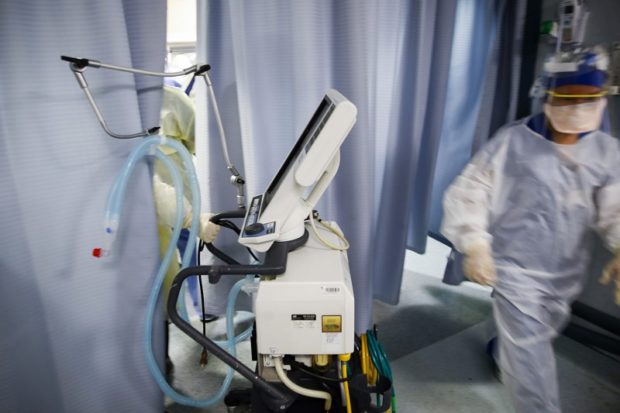
Delirium, rare brain inflammation, stroke linked to COVID-19: Study
PTI, Jul 9, 2020, 4:27 PM IST

Neurological complications of COVID-19 may include delirium, brain inflammation, stroke, and nerve damage, according to a study that says some of these symptoms may not be a direct consequence of the novel coronavirus infection but due to the immune system acting on healthy cells.
The research, published in the journal Brain, identified one rare and sometimes fatal inflammatory condition, known as ADEM, which may be increasing in prevalence due to the pandemic.
According to the scientists, including those from the University College London (UCL) in the UK, the team normally sees about one adult patient with ADEM per month, but that increased to at least one per week during the study period, which they added is a concerning increase.
The study provided a detailed account of neurological symptoms of 43 people (aged 16-85) treated at the National Hospital for Neurology and Neurosurgery, who had either confirmed or suspected COVID-19.
The scientists said that some patients in the study did not experience severe respiratory symptoms, and the neurological disorder was the first and main presentation of COVID-19.
They identified 10 cases of temporary brain dysfunction with delirium, which corresponded with other studies finding evidence of delirium with agitation.
According to the study, there were also 12 cases of brain inflammation, eight cases of strokes, and eight others with nerve damage, mainly Guillain-Barr syndrome, which usually occurs after a respiratory or gastrointestinal infection.
“We identified a higher than expected number of people with neurological conditions such as brain inflammation, which did not always correlate with the severity of respiratory symptoms,” said Michael Zandi, study co-author from UCL.
Zandi believes people should be vigilant and look out for these complications in those who have had COVID-19.
“Whether we will see an epidemic on a large scale of brain damage linked to the pandemic — perhaps similar to the encephalitis lethargica outbreak in the 1920s and 1930s after the 1918 influenza pandemic remains to be seen,” he said.
The scientists said that nine out of 12 cases of those with brain inflammation conditions were diagnosed with acute disseminated encephalomyelitis (ADEM), a rare brain disease, and typically seen in children and can be triggered by viral infections.
According to the researchers, the coronavirus was not detected in the cerebrospinal brain fluid of any of the patients tested, suggesting the virus did not directly attack the brain to cause the neurological illness.
In some patients, they found evidence that the brain inflammation was likely caused by an immune response to the disease, suggesting that some neurological complications of COVID-19 might come from the immune response rather than the virus itself.
Udayavani is now on Telegram. Click here to join our channel and stay updated with the latest news.
Top News

Related Articles More

‘Faster walkers’ had significantly lower risk of diabetes, hypertension: Study

World Meditation Day 2024: Celebrating inner peace and well-being

Virus causing gut infections could play role in development of Alzheimer’s: Study

Air pollution linked to more hospitalisations for all causes, mental illness too, study finds

Plant-based meat alternatives linked to increased risk of depression in vegetarians, study finds
MUST WATCH
Latest Additions

Kannada Sahitya Sammelana: Food distribution creates stir

Rohit gets hit in nets, practice pitches on slower side

India & Kuwait elevate ties to strategic level; ink defence pact after PM Modi meets top Kuwaiti leaders

In Kuwait, PM Modi meets yoga practitioner, other influencers from Gulf country

Notorious gangster wanted in UAPA case arrested at Nepal border
Thanks for visiting Udayavani
You seem to have an Ad Blocker on.
To continue reading, please turn it off or whitelist Udayavani.

















